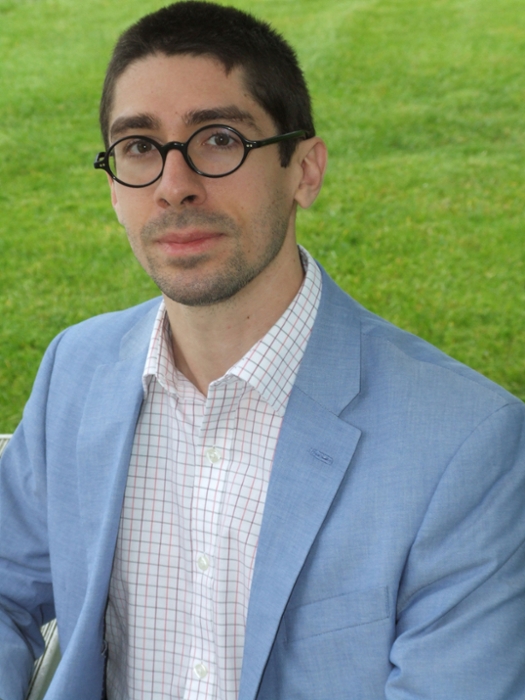- Home >
- Meet a Program Fellow >
- Vinnie Monaco

John "Vinnie" Monaco works in ARL's Computational and Information Sciences Directorate as a postdoctoral research fellow, where he focuses on developing the capabilities of low-power, massively parallel embedded devices.
U.S. Army Research Laboratory Computer Scientist Dr. John "Vinnie" Monaco recently won big at the Institute of Electrical and Electronics Engineers-sponsored Keystroke Biometrics Ongoing Competition, an official competition of the IEEE Eighth International Conference on Biometrics: Theory, Applications and Systems.
Keystroke dynamics is a behavioral biometric. More specifically, it is the automated method of identifying or confirming the identity of an individual based on the manner and the rhythm of typing on a keyboard.
According to the competition website, keystroke biometrics applications have been investigated over the past several decades, attracting both academics and practitioners.
For the Army, the potential application of keystroke dynamics lies in the detection of possible threats based on biometric identification to further enhance the security of battlefield networks.
According to Monaco, the competition required each participant to design a keystroke biometric authentication system.
"Each participant had access to a labeled dataset consisting of keystroke timings from 300 subjects typing short character sequences," Monaco said. "The labeled dataset could be used to train the keystroke biometric system, which recognizes a person by their unique typing characteristics."
The systems were then evaluated on a much larger, unlabeled dataset, in which the identity of each sample was unknown and had to be predicted solely from the keystroke timings.
Systems were evaluated based on the number of false predictions made on the unlabeled dataset. A false prediction can be either falsely accepting an impostor or falsely rejecting a genuine user.
Not only did Monaco have an entry for every system in the test, 15 to be exact, but his entries beat every other entry that was submitted.
All 15 of his submissions placed first since they each had a lower error rate than the best submission of every other participant.
Monaco is a supporter of competitions such as this, as they not only allow him to showcase his talents, but they foster and acknowledge novel ideas in the field of computer science.
"The competitions, and the Keystroke Biometrics Ongoing Competition in particular, are good platforms to demonstrate expertise in the computer science field," Monaco said. "They also promote innovation and provide an unbiased estimate of how mature a field is through the competition results."
Monaco works in ARL's Computational and Information Sciences Directorate as a postdoctoral research fellow, having decided on this career path due to the enjoyment he has for making things work and the notion that programming computers offers the ultimate choice of building blocks.
His current focus is on developing the capabilities of low-power, massively parallel embedded devices.
"Programmed in the right way, these devices could give the Soldier unprecedented ability to make informed decisions," Monaco said. "For example, target identification or risk assessment."
What Monaco enjoys most about working on this current project, and at ARL in general, is being able to work on projects that are driven by human life value.
Thinking short term, Monaco aims to publish and participate in his favorite journals and conferences. Long term, he hopes to perpetuate his intellectual pursuit while at the same time spark someone else's interest in computer science, and more specifically keystroke biometrics. Monaco received his bachelor's degree in computer science and mathematics from Pace University in 2012. He then went on to obtain his master's degree and doctorate in computer science, also from Pace University, in 2013 and 2015, respectively.
His doctoral studies were fully funded by the Department of Defense through a national scholarship awarded through the Information Assurance Scholarship Program.
If there is one piece of advice that Monaco could offer to members of younger generations who are interested in a career in science, technology, engineering and mathematics, or STEM, it would be: "Don't be afraid to participate in an event where you will be judged."
Outside the lab, Monaco enjoys reading and hiking. He is also an adjunct professor at Pace University, where he has taught a general introductory computing course for first year students and performed grant-funded research in the area of behavioral biometrics and cybersecurity.
